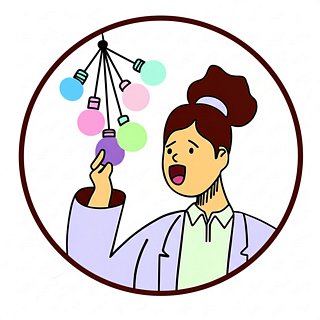
In India, Mitāhāra (Sanskrit for “moderate diet”) is central to Āyurveda and yoga, emphasizing a balanced, mindful diet suited to your unique needs. The goal? Align meals with your doṣa (body constitution) to stay healthy and prevent disease. Moderation is key—no excess, no shortage. Think wholesome, unprocessed foods like fruits, veggies, grains, and legumes. It’s a practice rooted in yoga, promoting physical purification, spiritual growth, and mental clarity. Eat with intention, and your body will thank you.
In Okinawa, locals follow Hara Hachi Bu (Japanese for “stomach 80% full,”) eating only until they’re about 80% satisfied. This approach, linked to their exceptional health and longevity, has earned them the title “land of centenarians.” Based on Confucian teachings of moderation, it’s now a popular Japanese proverb: “Stomach 80% full, no illness; stomach 120% full, doctor needed.” Follow this, and both your health and relationship with food will thrive.
Both Mitāhāra and Hara Hachi Bu share a core principle: caloric restriction—cutting calories without sacrificing nutrition. Studies show this can slow aging and extend lifespan in animals by reducing oxidative stress and improving metabolic function. While human aging is still debated, evidence suggests it may help reduce age-related diseases. The benefits go beyond longevity: mindful eating improves digestion, energy, sleep, weight management, mental clarity, and overall well-being. To practice, listen to your body’s cues, eat mindfully, and focus on whole foods like fruits, veggies, grains, and legumes. Limit unhealthy fats and sugars, avoid late-night meals, and stick to a consistent eating schedule. Watch out for overeating—those takeout boxes? They often pack more than you think. Social events or all-you-can-eat buffets? Beware—overindulgence lurks there.
Dieting is personal—what works for one may not work for another. It’s best to consult a dietician or doctor for a tailored plan. But here’s the key: eat mindfully. Pay attention to hunger cues and avoid overeating. Forget drastic calorie cuts—it’s about eating with intention. Are you consciously choosing your food, or eating mindlessly? Is your food fueling your body or filling a void? Mindless eating serves no real purpose.
Healthy eating isn’t about strict rules, unrealistic thinness, or depriving yourself of what you love. It’s about feeling great, having energy, and supporting your health. So, eat mindfully, eat with purpose, and eat on purpose. Your body will thank you.
 Hustle culture promotes the idea that ambition is demonstrated through exhaustion, making sacrifices in well-being appear necessary for success. Society has
Hustle culture promotes the idea that ambition is demonstrated through exhaustion, making sacrifices in well-being appear necessary for success. Society has  It’s not pressure that breaks people—it’s pretending it isn’t there. Your job isn’t to shield your team from pressure, but to sharpen their
It’s not pressure that breaks people—it’s pretending it isn’t there. Your job isn’t to shield your team from pressure, but to sharpen their  If you’re a working professional with a family, your calendar probably feels
If you’re a working professional with a family, your calendar probably feels .jpg)
 Agassi casts himself as a victim of his circumstances, expressing a weariness with the grind—a sentiment many can relate to. While few may hate their jobs
Agassi casts himself as a victim of his circumstances, expressing a weariness with the grind—a sentiment many can relate to. While few may hate their jobs  You’re not stuck in busyness—you’re choosing it. That packed calendar, the blur of back-to-back tasks, the sense that your time isn’t your own? They’re symptoms of decisions made without reflection, not obligations
You’re not stuck in busyness—you’re choosing it. That packed calendar, the blur of back-to-back tasks, the sense that your time isn’t your own? They’re symptoms of decisions made without reflection, not obligations  These days, the moment boredom creeps in, we lunge for a distraction—scrolling, streaming, swiping. It’s less a decision than a reflex, like we’re allergic to silence.
These days, the moment boredom creeps in, we lunge for a distraction—scrolling, streaming, swiping. It’s less a decision than a reflex, like we’re allergic to silence. Yet another preliminary report from a fatal airline accident leaves crucial details unresolved and continues to fuel debate—echoing the
Yet another preliminary report from a fatal airline accident leaves crucial details unresolved and continues to fuel debate—echoing the .jpg)
 There’s a purported Zen parable that goes like this: A seasoned thief brings his son to a wealthy man’s house in the dead of night. They sneak inside, and the father carefully guides the son through the process—finding valuables, avoiding noise, and staying hidden. At one point, while the son is inside a room, the father suddenly slams the door shut and locks him in, then loudly raises the alarm before disappearing into the shadows.
There’s a purported Zen parable that goes like this: A seasoned thief brings his son to a wealthy man’s house in the dead of night. They sneak inside, and the father carefully guides the son through the process—finding valuables, avoiding noise, and staying hidden. At one point, while the son is inside a room, the father suddenly slams the door shut and locks him in, then loudly raises the alarm before disappearing into the shadows.